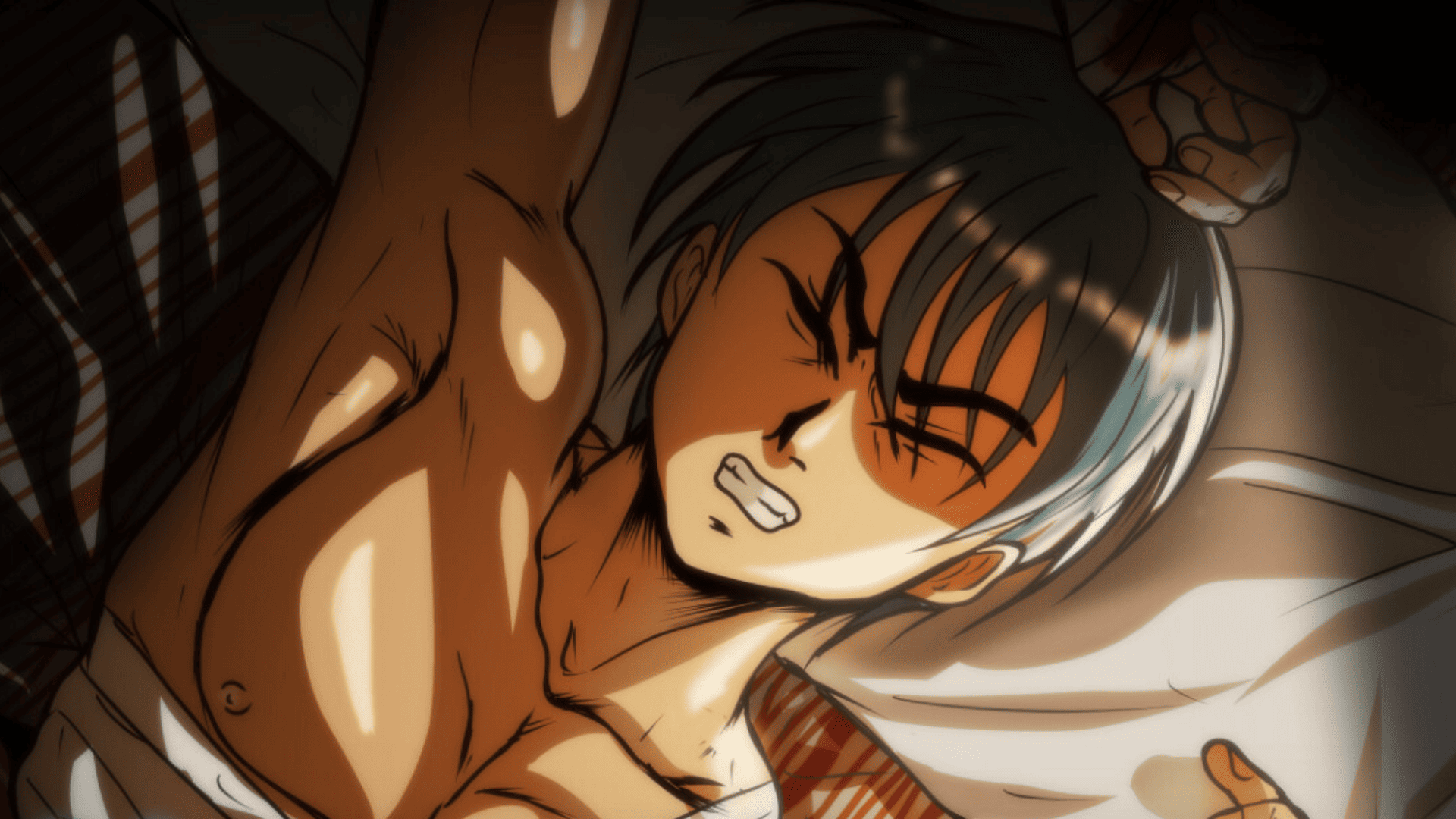
Gods of the Twilight developers speak on diversity and next-level ambition
If there’s one thing that Volutian Design can’t be accused of, it’s not having enough ambition and inspiration for their upcoming cyberpunk game, Gods of the Twilight.
Taking place in a world where the old world of magic has returned to a futuristic, tech-oriented world, Gods of the Twilight plans to have 3 seasons, plenty of episodes and is a fully-voiced project with actors from games such as Baldur’s Gate 3. What’s more, there are two protagonists, a varied cast, and an incredible amount of choices, each with varying amounts of consequences.
Eager to find out more, we sat down with lead developer Ashley Micks, as well as narrative designer Leandro Zantedeschi to find out more about the game’s development, and what makes the game a must-play for queer gamers.
Aimee: Hi both! Gods of the Twilight is a fully-voiced project. Why did you decide to go that route, and how did that affect the development of the game?
Ashley Micks: Working with actors may actually be my favorite activity in life. Even more so than writing, which is saying something! There’s something magical about getting inside the characters’ heads alongside someone else who brings their own creative fire to the process and brings life to the story together. Even as a child, I remember pulling together friends and directing them in skits, and when I later studied theater, directing and writing were my concentration. I’ve also appreciated it greatly whenever games voice their dialogue, especially in story-focused games where I really want to connect with the characters. There’s another level of expression and immersion that you achieve that way.
In terms of development, it’s a non-trivial effort in terms of time and funding, but since we were able to budget for it, I would definitely say it’s worth it. Having the actors’ creative input also inevitably improves the end result, because you discover things with them that you wouldn’t have thought of on your own.
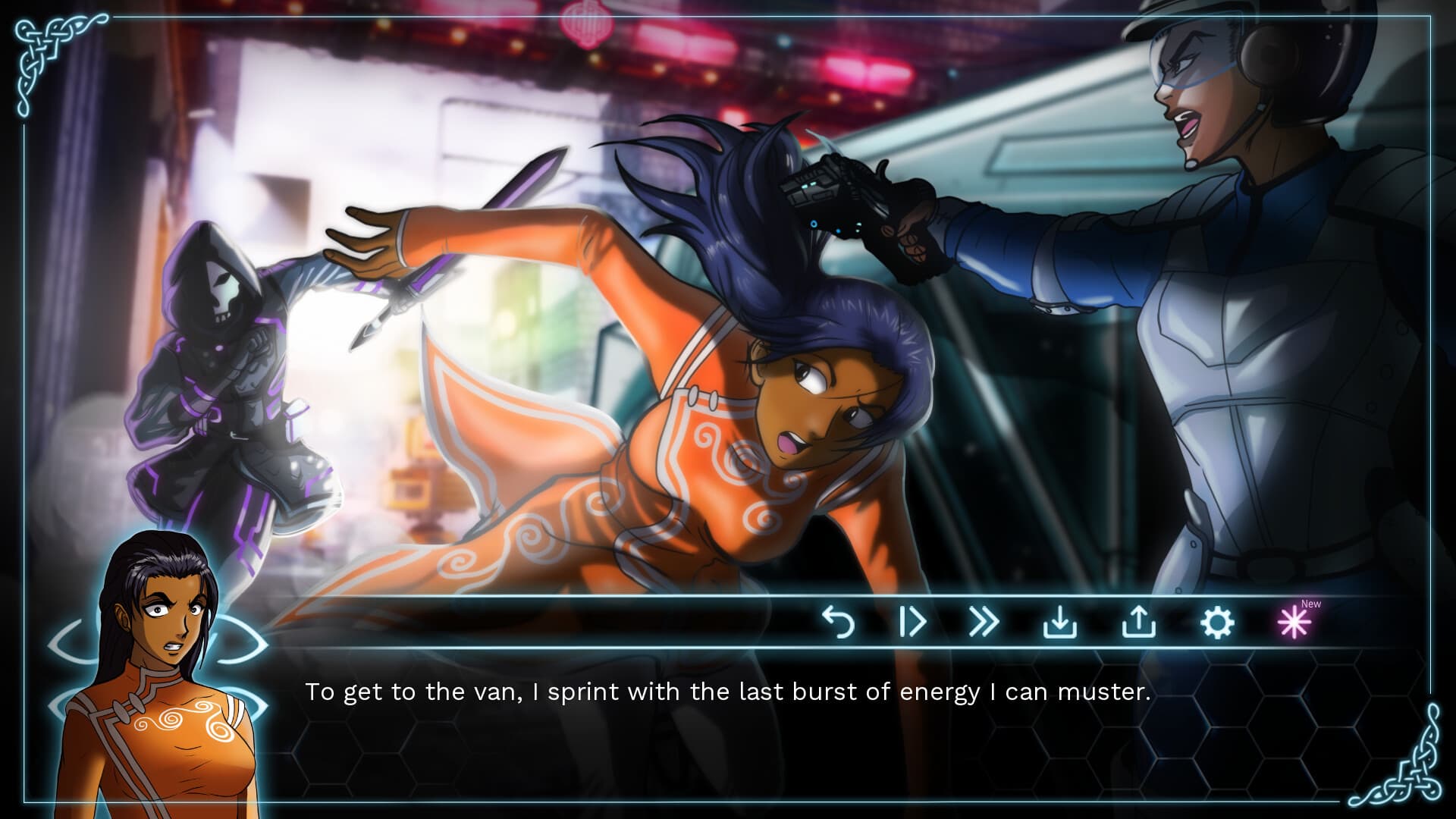
Leandro Zantedeschi: Choosing to make Gods of the Twilight a fully-voiced project was a deliberate decision to enhance the immersive experience for players. We wanted to bring the characters and the story to life in a way that would deeply resonate with the audience. Visual novels need to make use of high-quality music, voice, visuals, and writing to sell the story.
In a world full of attention-grabbing short-form multimedia content, many people may not engage with lengthy text-based narratives as readily as previous generations. This shift in reading habits also influenced our decision to prioritize voice acting, recognizing that it could play a crucial role in keeping players engaged through the story.
Althea and Farkas are the main protagonists. Why two dual protagonists instead of just one, and what are the big differences between the two of them?
AM: The themes we want to explore aren’t simple, but it’s easy to mistake them for simple if you only see them from one perspective. Althea and Farkas contrast with each other in a variety of ways: masculine and feminine, high-income vs. low-income family, always lived in the same city vs. constantly moving, book smart vs. street smart, and coming from different parts of the world.
By letting the player not only meet such contrasting characters but actually be them, sit inside their heads, and identify with them, it becomes easier to relate to people who are on different sides of any given situation. They also may or may not get along with each other, or circumstances may pit them against each other, so you can find yourself on both sides of a conflict, identifying with both. All kinds of interesting experiences and feelings can come from that.
LZ: Player agency and choice-based roleplay are at the core of the multi-perspective narrative experience we wanted to create. The player characters have certain appearances and backstories, but their personalities, their values, and their relationships are shaped by your choices. The characters are still the same people, but your version may end up surprisingly different from your friend’s.
You may find yourself relating to one protagonist more than the other due to how different they are, but because your choices affect who they become, you can hopefully see yourself in each of them at least a little bit. Either way, if you can truly relate to at least one character, they serve as an anchor to ground you into the world so you can experience the story through their eyes, so we want to make it as easy as possible for players to quickly find at least one protagonist they can invest in.
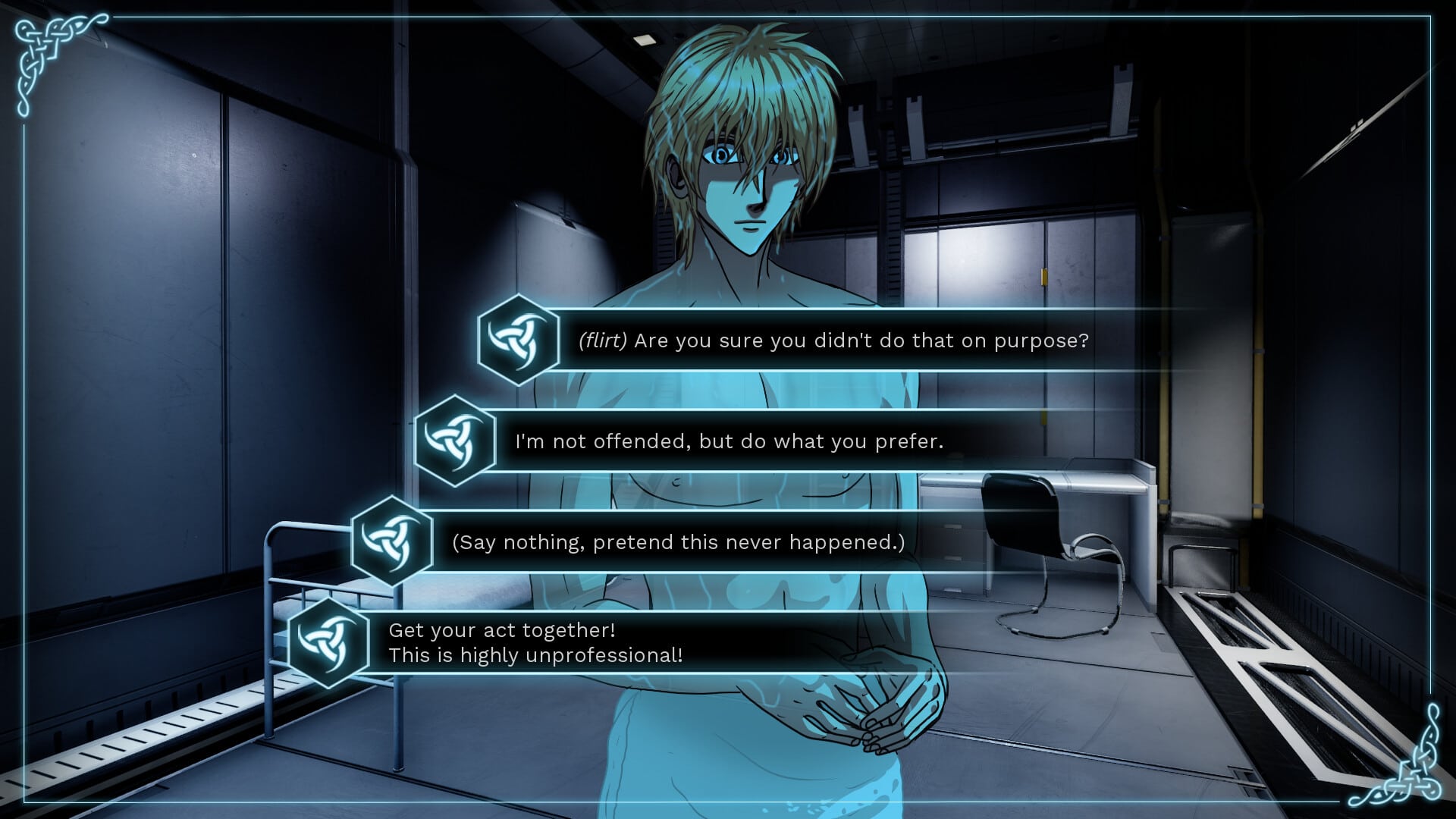
With 3 seasons planned and 20 chapters for the first, and the overwhelming amount of choices… There’s clearly ambition here that’s next-level. What made the team want to take on this venture for their debut game?
AM: It’s normally recommended to start your game dev journey by shipping several smaller games to build experience and brand identity while honing your craft, before working on something more ambitious. But sometimes the inspiration is so strong and concentrated that if you put off the work you’re truly interested in, and work on several smaller things instead, your heart just won’t be in the work. And when the games you’re trying to make are story-focused, they fall flat if your heart isn’t in them. Or they may never begin because there’s no inspiration to get started.
So sometimes, even if it isn’t the most strategic or logical move, you just have to let your inspiration go where it will. If it’s your first game, you’ll make mistakes, and it won’t be very good at first. But if you’re able to continue iterating on a project, it will improve alongside you. That’s part of the benefit of having an episodic project — we release over time and continue to refine our work as we go. The project becomes better as we become better.
LZ: We were excited about the opportunity to create something ambitious with a long-term plan. Player expectations are continually rising, and we want to make a strong impression by setting a high standard.
As Baldur’s Gate 3 shows, lots of players are happy to make time for long-form narrative experiences so long as they’re high quality and allow players to feel immersed and make impactful choices. The fact that we’re releasing the story over time makes the scope more manageable while also giving us a chance to keep building interest in the game and a relationship with players as we go. Instead of just trying the game and being done with it, they have a reason to stay engaged, like waiting for the next season of a favorite show.
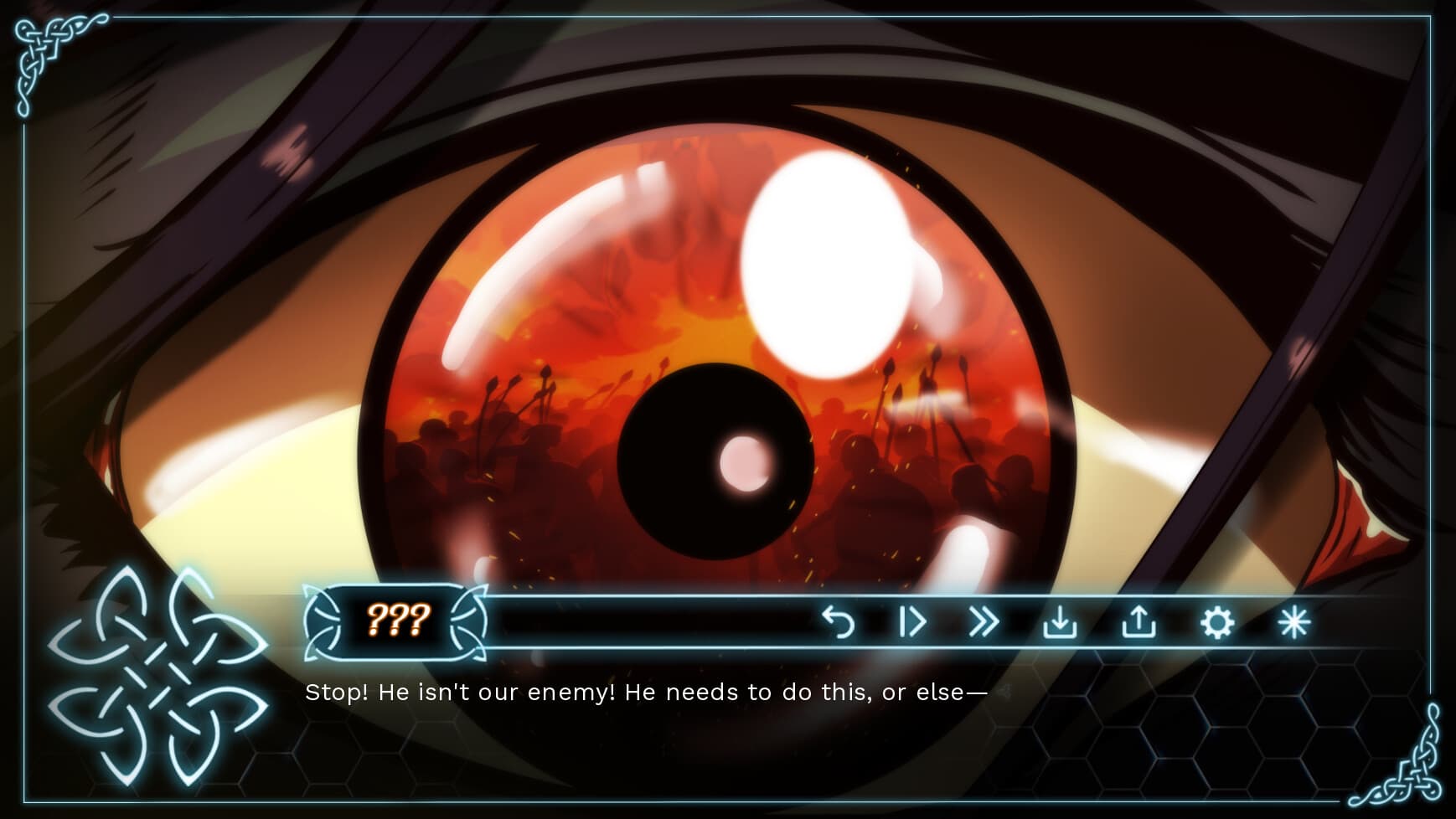
How important is early access for the development of Gods of the Twilight? For example, if there’s a choice that proves unpopular, will that be considered as the team continues to develop the game?
AM: Early Access is a great fit for episodic projects because not only can we release chapters as we develop them, but we also receive feedback early and often as we think about our next chapters. That way, we can make sure we’re doing a good job connecting with players and making the story a meaningful and engaging experience for them. If there are characters or aspects of the story that they take more interest in than others, we can explore those things in more detail as we go forward. Even our early chapters can continue to improve as we learn more about how different people interact with them.
LZ: It’s very important for us to gather feedback from players who are actively engaging with the game. Sharing stories isn’t a one-way street – it’s an exchange between the storyteller and the audience, especially when the story is interactive.
Could you tell us some more about what inspired Gods of the Twilight?
AM: In 2018, Leandro and I began seriously discussing writing a novel together. We knew each other as part of an online roleplaying community that played both MMOs and tabletop RPGs like D&D, so we had created tons of interactive stories together, and we wanted to make something we could share with the world. But the more we thought about it, we realized it needed to be interactive. Exploring the impact of choice in nuanced situations with no simple “right” answer is one of the most profound and fulfilling experiences we’ve shared with our fellow roleplayers, so we needed to include that. Those kinds of situations really make you think and really make you feel, both in the moment of a choice and in its aftermath.
Our game is set in a world with… I wouldn’t even say many shades of gray, but just many colors. Because that’s what the complexity of life is like, not a one-dimensional morality spectrum from good to evil, but all kinds of different factors at play.
As for what inspired the game’s setting, real life is already starting to become a bit of a cyberpunk dystopia if you think about it! It makes us want to kick off some meaningful discussions with our fellow humans about where we’re headed and what we all want to do about it. We don’t have answers, just as the game has many options, but the player has to decide what’s right for them. But we do love exchanging perspectives with others and expanding our own perspectives in the process.
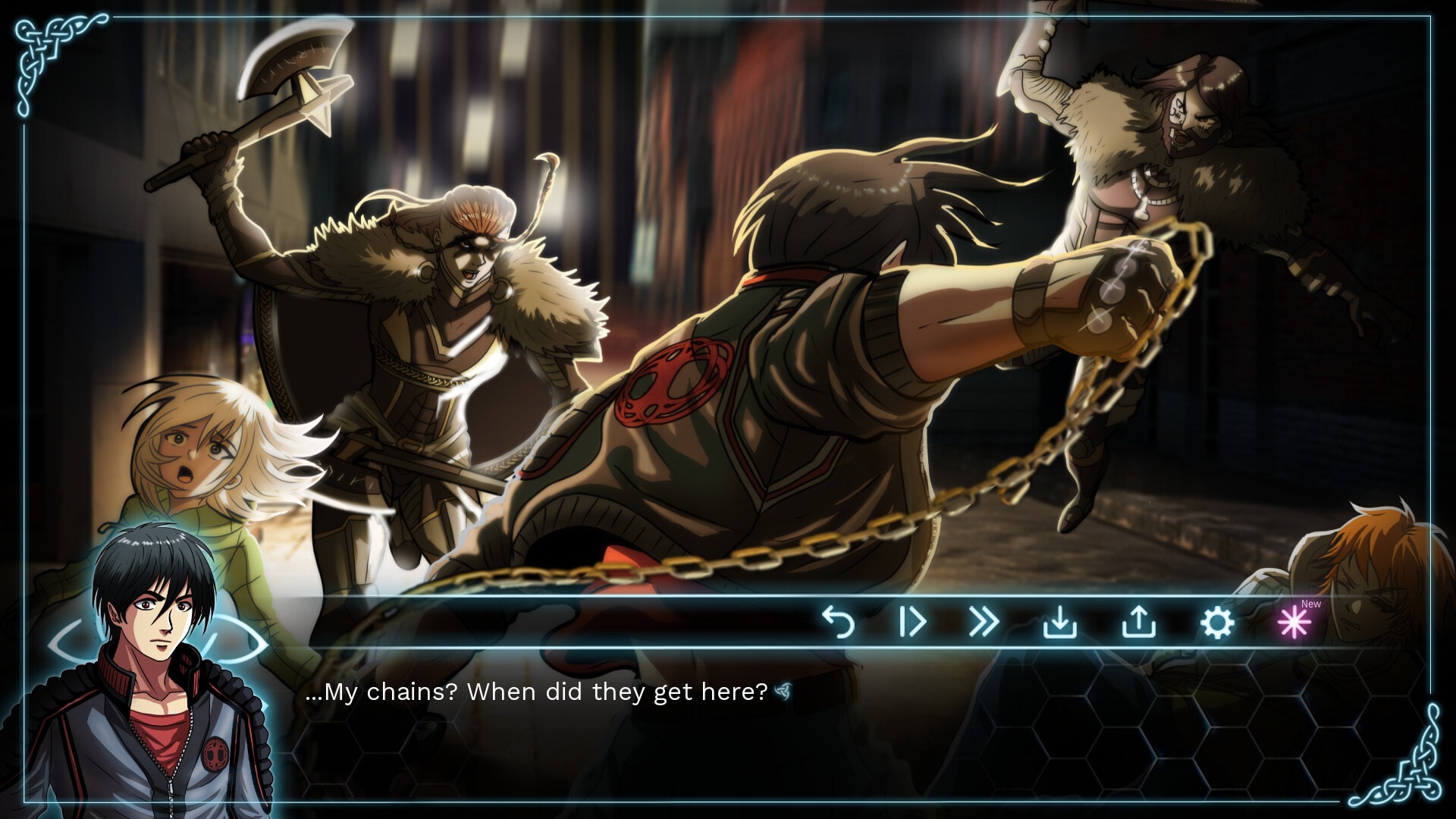
LZ: For me, a big inspiration was Fate/Stay Night, a hobbyist visual novel from Japan that became a massive franchise spanning decades. Just like Gods of the Twilight, it delves into epic mythological themes and weaves legendary figures and magic into a narrative that takes place in the modern world. But there are tons of other books, anime, shows, and games that inspired me as well. I’m always reading, watching, or playing something new, especially when there’s rich lore and world-building, interesting and complex characters, and engaging stories.
Will there be queer relationships and sexualities in Gods of the Twilight?
AM: Of course! The two protagonists are for the player to define in terms of what characters each of them has a romantic or sexual interest in, and whether they have such interest in anyone at all. As for the NPCs, many of them fall along a spectrum in terms of how frequently they find themselves attracted to different genders, but it depends on the individual!
We’re also committed to providing polyamorous options that truly feel like relationships – which is to say that poly is complex and requires communication and care, but it can result in a very deep and supportive set of bonds.
As a side note, we foresee that in the cyberpunk future, people will interact with each other online even more than they do now. So, it’s not uncommon for characters to have had most of their relationship experience online and very little (if any) experience with in-person relationships… at least until now!
When the game begins, many of our characters don’t have much relationship experience at all–not just because of technology, but because everyone is lonely for their own reasons. So no pressure to navigate relationships perfectly from the start! The characters have time to learn and grow.
LZ: Player freedom and agency are core values for us, and a large part of that freedom comes from being able to decide how you interact with the characters and how you feel about them. How the characters feel about you in return also depends on your choices, and we wanted to give players a chance to explore as many possibilities as possible. Many NPCs have the potential to be attracted to either player character, or to both at the same time. And who the PCs are attracted to is ultimately up to you since you’re the one controlling them, so there is definitely an assortment of relationships to explore.
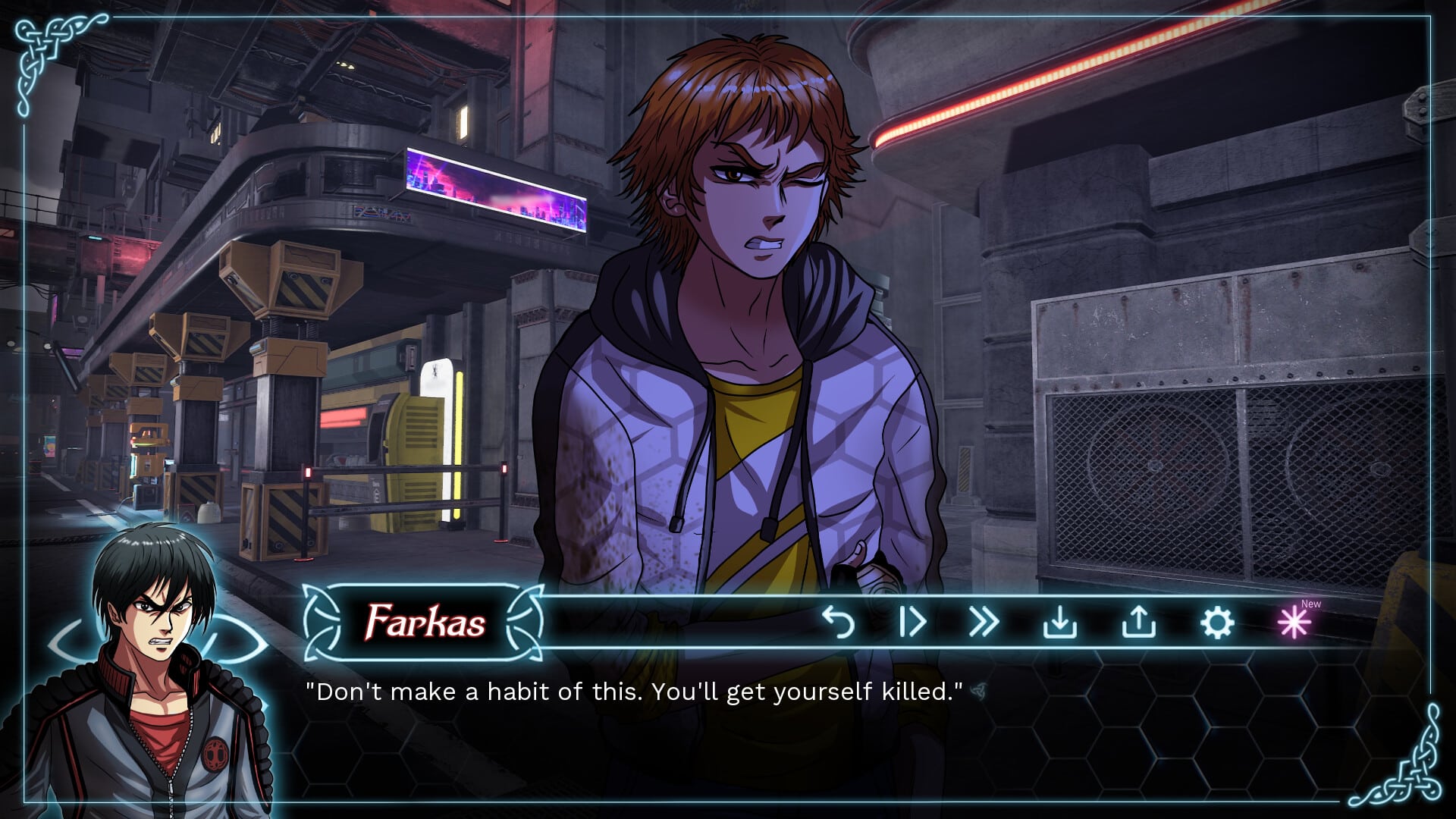
If the world always ends in Gods of the Twilight, is it considered a tragedy and if so, how will you make the journey towards that end meaningful to players?
AM: Endings are a necessary part of life – winter turns into spring, and the old becomes fertile ground for the new. In the myths, Ragnarok destroys the world, but it isn’t the end of time. There are survivors who rebuild. There is the tragedy of loss but also an opportunity to create something new. How you play the game determines what those losses are, what that post-apocalyptic scenario will look like, and whether there is anything that remains at all.
LZ: The inevitability of the world’s end adds a sense of urgency to the story, forcing the characters to figure out what’s going on and what to do about it. Despite the tragic apocalyptic backdrop, the narrative carries plenty of light-hearted moments and will emphasize themes of resilience, hope, and the triumph of the human spirit.
Players will navigate challenges, forge connections, and find strength within themselves and their companions. I’m reminded of this quote that goes, “You can’t go back and change the beginning, but you can start where you are and change the ending.” Ragnarok, the old Norse apocalypse, is a prophecy, but it hasn’t happened yet. So when it comes, what happens next is up to you.
Gods of the Twilight releases its first 5 chapters in Steam Early Access for Windows PC, Mac, and Linux on November 14, 2023. A demo is currently available on Steam and Itch.io.





